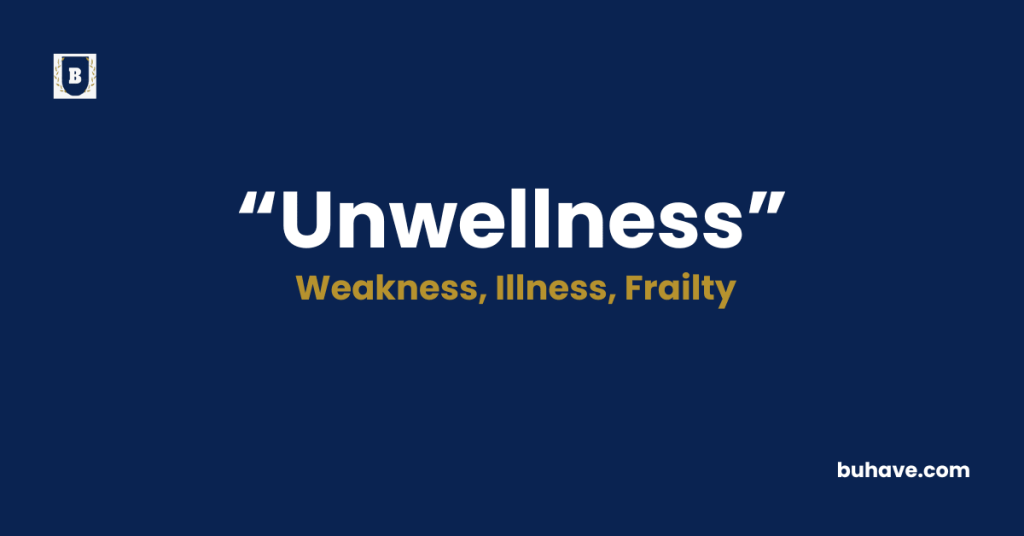The word Unwellness (noun) refers to a state of not being healthy, either physically, mentally, or emotionally. In this guide, you’ll learn the full definition, synonyms, antonyms, etymology, and real-life examples of how to use Unwellness correctly in sentences.
Unwellness Explained in Depth
A complete and detailed guide to the word Unwellness including meaning, definition, examples, etymology, synonyms, and antonyms.
Meanings of Unwellness
Unwellness means a general condition of being unwell or unhealthy, which could refer to physical sickness, mental distress, or emotional discomfort. It describes a deviation from well-being, where a person is not in an optimal state of health or stability.
Definition
Unwellness refers to the condition of being in poor health, whether physically, mentally, or emotionally. It may manifest through symptoms like fatigue, pain, anxiety, stress, or other signs of discomfort and imbalance. While the term isn’t as commonly used as “illness” or “sickness,” it captures a broader range of feelings that may not always meet medical criteria but still reflect a decline in well-being. Someone experiencing unwellness might not be seriously ill but can feel “off,” low in energy, emotionally unstable, or unable to function normally.
This term is often used in holistic health and wellness contexts to describe overall imbalance rather than a specific disease. It’s applicable in describing both short-term conditions, like catching a cold, and more persistent ones, such as burnout or anxiety disorders.
Etymology
The word unwellness is derived by combining the prefix un-, meaning “not,” with wellness, which refers to a state of good health and well-being. The term “wellness” has roots in the Old English word wel, meaning “in a good or satisfactory way,” and has evolved to broadly refer to health and vitality. Adding the prefix “un-” creates a direct negation, implying the absence or opposite of health.
Though is not as old or widely established as its components, it has gained more usage in modern times, particularly in health, wellness, and self-care discourse. It encapsulates a holistic idea of health not just defined by the absence of disease, but by an overall sense of physical, mental, and emotional equilibrium something that is missing when someone is in a state of unwellness.
Example Sentences
- She took the day off due to a vague sense of unwellness that she couldn’t quite describe.
- The retreat focused on healing both physical pain and emotional unwellness.
- Persistent unwellness may be a sign of chronic stress or burnout.
Unwellness Synonyms
- Illness
- Sickness
- Malaise
- Discomfort
- Fatigue
- Distress
- Weakness
- Disorder
- Poor health
- Ailment
Unwellness Antonyms
- Wellness
- Health
- Vigor
- Vitality
- Strength
- Robustness
- Fitness
- Wholeness
- Stability
- Soundness
FAQs about Unwellness
Here are some frequently asked questions (FAQs) about the word “Unwellness”
1. What does “unwellness” mean?
It refers to a general state of not being well, including physical illness, emotional distress, or mental imbalance.
2. Is “unwellness” a medically recognized term?
Not formally in clinical diagnoses, but it’s widely used in wellness and self-care discussions to describe a lack of well-being.
3. Can “unwellness” refer to mental health issues?
Yes, it often refers to emotional or psychological discomfort as well as physical symptoms.
4. How is “unwellness” different from “illness”?
Unwellness is broader and may include discomfort or imbalance not classified as a disease, whereas illness typically implies a diagnosable medical condition.
5. Is “unwellness” a commonly used word?
It’s less common than “illness” or “sickness,” but is gaining popularity in holistic health and wellness contexts.

















